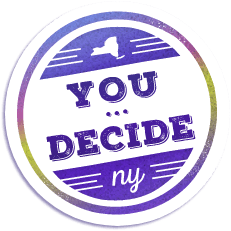As students gear up for another exciting school year, it’s crucial to remember that making healthy decisions extends far beyond academics. This back-to-school season, let’s prioritize well-being, including safeguarding against the risks of gambling.
Focusing on healthy choices from the start sets the stage for a successful year ahead. Whether it’s staying active in sports, engaging in creative hobbies, or fostering supportive friendships, these activities not only enrich students’ lives but also build resilience against the allure of gambling.
Promote open discussions about the potential risks associated with gambling and emphasize alternative outlets for excitement and fulfillment. Students will make healthy choices with confidence when they have the right tools at their disposal. Together, let’s make this school year a time for growth, learning, and most importantly, safeguarding the future of our students.
Let’s look at steps our youth, our young adults, our parents, and our community influencers can take to prevent the consequences of youth gambling.
Youth
Make this year your best year yet by being a role model for your peers. 77% of youth are not gambling. By not gambling, you are in the majority, which is the group of those who don’t gamble. Taking action by saying “no” to gambling and encouraging discussion of other exciting and healthy activities helps you take control of your life.
Avoid gambling behaviors and help discuss alternative activities your friends can enjoy together. Decide on activities you’d like to do and who you’d like to do them with. Then, you’ll be prepared for these discussions with your friends and feel more confident avoiding situations where gambling is present.
Young Adults
As an older student, you already understand the importance of education. Well, you can take the wheel and decide what you want to learn based on what you want your back-to-school to look like. Something you can learn more about is gambling and the potential consequences for young adults.
Learning more about gambling, especially chance and probability, will help to better understand that gambling is not a way to win money. Additionally, it’s important to know the signs of problems due to gambling so you can monitor yourself and support your peers.
Parents
Like always, the more you know about something, the better prepared you’ll be to address it. You’re probably aware of the dangers of alcohol and drug use, but it’s also important to understand the risks of gambling. This is especially true since gambling is addictive, and very often accompanies or leads to alcohol, tobacco and drug use.
To help your youth and their peers on a path of a healthy and exciting new school year, start a conversation. You don’t need to know a whole lot about gambling. Focus on asking questions to learn about their knowledge of gambling. Be sure to state your disapproval of youth gambling, or your encouragement of alternative activities for young adults.
Community Influencers
As a community influencer, you can prepare your community for discussions and prevention of youth gambling. Back-to-school is mentioned everywhere. From department stores to sporting stores, camps and social media, there are endless free opportunities to raise awareness of the consequences of youth gambling.
Additionally, take a stance against youth gambling by working with all community event organizers to prohibit gambling-focused fund
Services for Those in Need
If you find yourself struggling with gambling harm, or if you suspect someone you know is facing such challenges, don’t hesitate to seek help. For 24/7 support, call the NYS OASAS HOPEline at 1-877-846-7369 or text 467369. Or choose your county using our interactive map on our NYProblemGamblingHELP.org HOME PAGE to see the contact information for the Problem Gambling Resource Center (PGRC) in your region.
